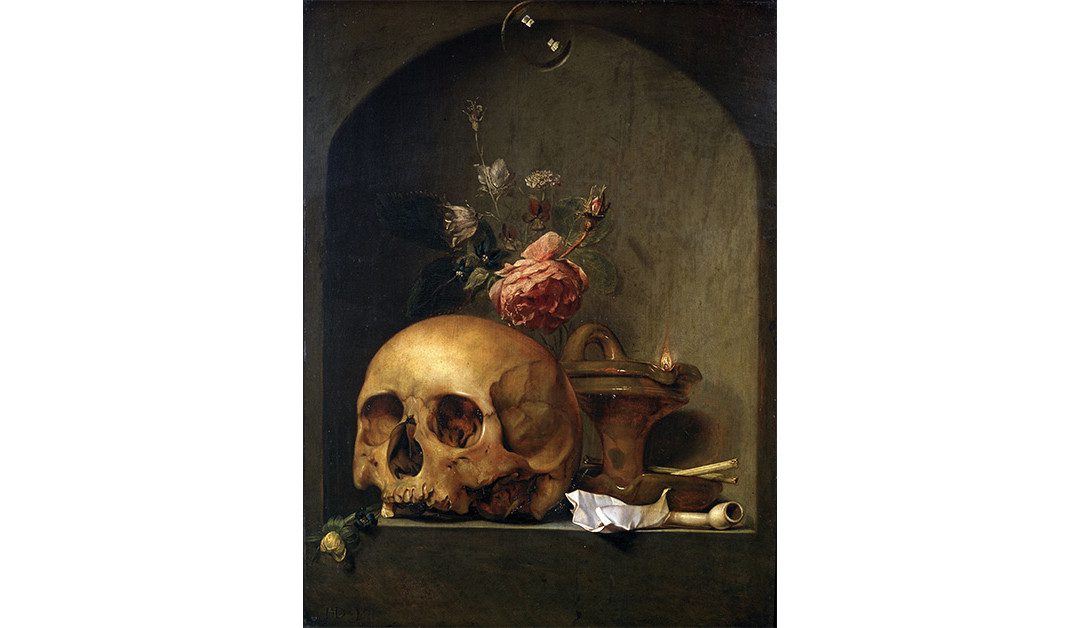Do suicides experience relief from the painful circumstances that led them to such extreme measures?
What if they cross over and find it’s somehow worse than staying in their physical bodies?
What if people who commit suicide actually find themselves in a place of deep regret, who thought that ending life was the only possible relief from their pain but find that other space to be so ineffably drab and boring, so very not the deliverance they expected, that they long rather to be back in their shitty life; whatever the weights and oppressions, the guilt, the depression, the sadness may have been, it would have been infinitely better than this disembodied existence following death, but not delivered into a wonderful new realm of peace, quiet, and numbness, escape from their pain?
This fear is what keeps me from desiring death too strongly. (Although the apostle did say, to be away from the body is to be present with the Lord. But maybe that is only true of those who belong to him.)
I mean, every time I hear of some celebrity dying, I can’t help but feel a little envy. Dick Cheney died recently. Ozzy Osbourne before him. Queen Elizabeth. Daine Keaton. Robert Redford. Pope Francis. Val Kilmer. Gene Hackman. I wonder what they think about their past physical lives now. Do they miss it?
George Foreman? I found his name on a list. I must have missed that one.
David Lynch I heard about because I was always a fan of his movies. And Bob Uecker. Ace Frehley.
My own mother died just over a year ago. And my uncle Butch followed her just weeks later. Are they aware of this life in the after world? Or are they so consumed with bliss that their thoughts don’t return to this world anymore? That’s what we comfort ourselves with when loved ones depart, that they’ve gone to a better place.
Does everyone go to the same fate, the same waiting place? The immediate presence of God? or some kind of purgatory? a waiting room where those who have gone before linger, waiting for a consummation? Or is it annihilation?
The options of annihilation or heavenly bliss are the only two that are acceptable, credible, not completely insane. The only option that is unthinkably insane is the one where there is a Divine Creator who damns departed souls for eternity, the current default dogma of most Christians. Give me annihilation over that!
Why is it that a universe without God is as amenable as one with God? This seems very strange.
With annihilation, you’ll never miss your old life, never be aware to even experience regrets, because consciousness, that fleeting dream, that quirky anomalous illusion of the brain, ceases.
There is no you or me anymore, that’s what annihilation means. We won’t feel regret for being annihilated because we won’t exist!
The problem with annihilation is that nothing means anything in this life. This earthly experience means absolutely nothing. Nothing matters. Living and dying don’t matter. Murder doesn’t matter. Suicide doesn’t matter.
It’s darkly funny that atheist Existentialist philosophers Sartre and Camus and others had to spill so much ink to explain why we shouldn’t all just kill ourselves, because their philosophy suggests just that. They bravely faced the “fact” that there is no God and nothing means anything—except existence for its own sake.
“Really? Thanks a lot, Camus, because the world can be a horrible place, and frankly sometimes I just want to check out. And if there’s no God and nothing after death but annihilation, then why not? Nothing means anything! Wheee!”
Their explanations I found not just trivial and unappealing, but absurd. Just existing is its own end, so go ye therefore and exist! Don’t worry about hunger, destitution, war, addiction, enslavement, or cancer! Just existing makes it all worthwhile!
(Not ‘meaningful,’ mind you. Just better than the alternative of not existing.)
I don’t think those philosophers were able to live with their own philosophy. Turns out, things did have meaning to them but they could not give a convincing reason why.
The alternative of a good God who loves humanity, who stores up good gifts, and is preparing a place of ultimate meaning and joy, even if that turns out to be false, even if our consciences are ultimately annihilated, seems a much better path and ultimately exceedingly more optimistic.
Existentialist readers, do you want to accuse me of misrepresenting existentialism? Defend it! In the comments, explain where this bleak picture is not the end result of existentialism. Enlighten me.







